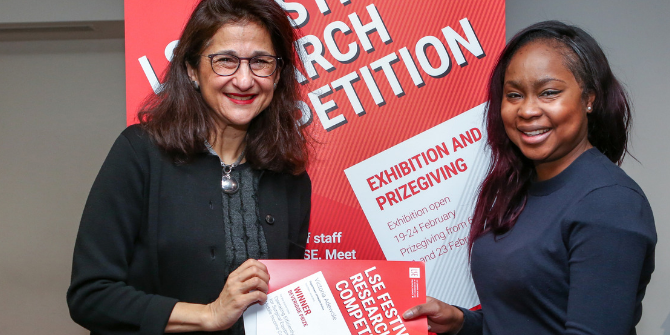Blog by our PhD Careers Consultant Catherine Reynolds:
Career conversations with PhD students tend to focus on two employment sectors: in and outside academia. But in a complex labour market is there a simple binary divide between these employment worlds? Your future might involve both. Putting aside tricky questions about finding vacancies, making applications and succeeding at interview for now, I’d like to consider where will you find job and personal satisfaction? Where will you thrive and do your best work? There are pros and cons in every employment sector and multiple roles in both.
LSE Careers actively supports your career progression whether you intend to work inside or outside academia or in both.
Academic roles
A common complaint from those working in academia is around the volume of work and multiple pressures. You might have seen the THES article (April 2016) about academic life titled: A Workload Survival Guide for Academics. A range of academics reported lessons and practical tips drawn from their personal experience. This produced some great advice about professional priorities and finding focus so that work and home lives are both enjoyed.
But academia is a kind of cult and leaving it behind can be complicated, particularly whilst you are still part of it. Websites, blogs and books share the strains of academic life and offer advice on alternatives. I like sites such as: Escape the Ivory Tower, Jobs on Toast and the ‘It’s Ok to Quit’ pages of ‘The Professor is In’.
Other roles in higher education
Earlier in the year, at one of our PhD careers events, Dr Alex Free (LSE, Media 2015) spoke about his role as a Communications and Research Officer working on Equality, Diversity and Inclusion in the Professional Services Division here at LSE. He enjoys still being part of the higher education community, having access to University resources and continuing to publish academic articles, whilst earning a regular income, in a city he wants to live in and having a stimulating work role. He learned through selection processes to present himself as a professional researcher rather than as a PhD graduate. Research degrees are preparation for being a researcher of many topics – you won’t undertake the same project again and recruiters need to know you can transfer your skills and motivation to their setting.
Learning and using the language of the recruiting organisation was a key message from Alex; presenting yourself precisely for the new role means analysing the job description very closely and finding connections between your experiences and their requirements. Having a PhD and working in higher education in an ‘alternative academic role’ is not uncommon and staff in many professional service departments are qualified at PhD level. Look around you!
Outside academia
Similarly, some staff in the Civil Service, NGOs, think tanks, consultancies and international organisations are also PhD qualified. Their job titles tend to include researcher, analyst, consultant. Some people will move into academic positions later, if they can continue to build relevant experience – that’s research, publications and teaching. Others will stay in organisations outside academia and thrive there. Increasingly senior people have a PhD as part of their portfolio, not its defining element.
Having both?
So how realistic is the possibility to be both? Careers do not need to be conducted in straight lines. Dr Julia Horn describes careers as ‘Odyssean’ Homeric style meanderings as well as ‘onward and upward’ trajectories. She says:
Cycling in a career means moving in and out of different realms of activity, changes of employment, industry, occupation and location, examples include changing the job itself, moving between projects, moving between full-time and part-time work, moving between work commitments and family commitments. This may be more rewarding: many of the academics who at the end of their careers appear the most accomplished, are those who behave in maverick ways, straying into fields which were not originally their own.
Creating a portfolio of experience
Building experience during your PhD can provide a rich resource to draw from later. As well as research and teaching the impact your work is having in external organisations can help build the dual pathway. Getting yourself known, getting your work known and building your network are legitimate activities during your PhD; you might consider contributing to blogs; media coverage; talking to audiences outside academia; doing some consultancy or other temporary work. Some ideas and useful links are reported on our blog.
Some examples
Last week a panel of PhD social and other entrepreneurs spoke about the satisfactions they gained from having their own enterprise in addition to other their roles. More about these speakers in the next blog post:
- Alex Green (PhD LSE, Economic History, ongoing)
- Andrea Rota (PhD LSE, Sociology, 2016)
- Asi Sharabi (PhD LSE, Social Psychology, 2005)
- Giulia Pastorella (PhD LSE, European Studies, 2016)
- Stuart Theobald (PhD LSE, Philosophy, ongoing)
- Jonathan Freeman (PhD LSE, International relations, ongoing)
Careers appointments
Confidential one-to-one careers consultations are available every week, use this to plan your career strategy during your PhD so you go on to work in an environment where you will thrive. Book an appointment with me now!






1 Comments